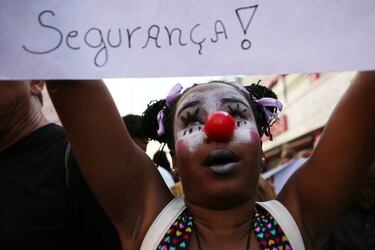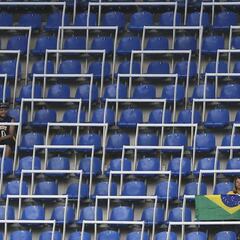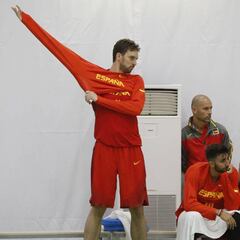The power of sport could still prevail despite Rio's problems
In the run up to this Olympic Games (which officially gets underway today), and with all the mixed news that we’ve been hearing come back from Rio, the yearning for what could have been has been all the more accentuated. The city of Madrid ran to host these games, as most already know by now. It was seven years ago in Copenhagen when Madrid won the first round of votes, but without the required majority. In the following rounds (where the country with the least votes would be eliminated) Brazil in the end came out on top. And it sincerely didn’t seem like a bad thing either. Brazil back then was a country on the up. Lula (the country’s president at the time) had widespread prestige, while the nation’s clever presentation did well at highlighting the historic disproportionate distribution of the Olympic Games, touching the consciousness of many in the process.

A case well made
Related stories
Lula and his delegation put up a world map which showed all the previous hosts (including the winter Olympics), all of which were in the Northern Hemisphere, except Melbourne 1956 and Sydney 2000. Not one in Africa, nor South America, nor South Asia. Jacques Rogge – then president of the International Olympics Committee (IOC) – had said that as a developing country, Brazil offered a credible candidacy, and was in favour of giving them the Games. It was clear that the case has been well made and Madrid was resigned to defeat. A big disappointment (the second of three), but one from a sensation that justice was being done. And it was thought then that Brazil would rise to the challenge.
Brazil is not what we expected it to be
Unfortunately, on the day of the opening ceremony (Friday 5 August 2016) we find a much different panorama to what had been proposed those seven years ago. Lula (who’s embroiled in a corruption scandal) is not what he was, and Brazil is not what we expected it to be either. The Zika virus isn’t even the worst thing. The insecurity in the country is tremendous, there are inconveniences due to the poor execution of planning and construction, both money and time have run out, the state of the water on which athletes have to compete is insufferable, but worst of all, a good part of the population has turned its back or are against the Olympics altogether. However, we can’t say it’s not going to be a success. The great power of sport could still prevail over all these difficulties and win over all the critics. Let’s hope we have a great Games, despite everything.


